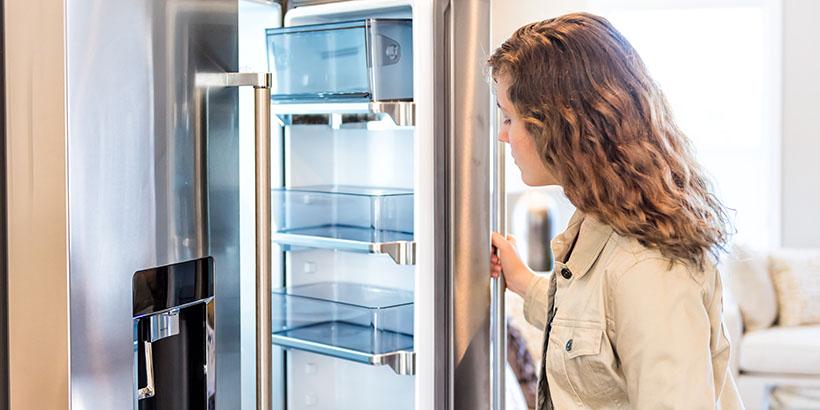Buying an energy- and water-efficient home can help you save money and increase the comfort of your home — in addition to being better for the environment. From windows to water heaters and insulation to certifications, learn what to look for in determining the energy and water efficiency of a home you’re considering buying.

Lower electric, gas and water bills are one of the biggest benefits of upgrading the energy and water efficiency in your home. In fact, up-to-date, energy-efficient technologies and high-efficiency plumbing fixtures and appliances you can save up to 20% on your energy, water and sewer bills, compared to a less-efficient home.
Additionally, in most cases, energy efficiency and home comfort go hand in hand. For example, you and your family can enjoy the year-round comfort of fewer temperature variations and more immediate hot water from the tap.
You can determine whether a home is energy- and water-efficient in a few ways: look for yourself, ask your real estate agent for help, or hire a professional to conduct a home audit. For a thorough assessment of the efficiency of a home, you can arrange for a professional home audit through RESNET or the Department of Energy (DOE).
Here are three tips to help you recognize and buy an energy- and water-efficient home.
-
Choose a real estate agent with experience working with efficient homes.
Your real estate agent should be able to help you understand the current energy usage of the home you’re interested in purchasing. Learning about the current owner’s expenses will tell you a lot about how much efficient upgrades could really save you.
If you’re explicitly looking for green housing, it's helpful to work with a housing professional who has specific expertise or credentials. Examples of green certifications include the National Association of Realtor’s Green Designation and the LEED Green Associate certification.
-
Look for energy-efficient features.
Some basic energy-saving features to check for when you visit homes include:
- Insulation: Good insulation holds in heat in cold months and keeps it cooler during warm months, which helps conserve energy. Because you can’t see the insulation, it may be something you’ll need to ask the seller about or cover as part of your inspection and general energy audit.
- Windows and doors: Check that they are properly sealed. A poor fit or cracked seal lets air enter and escape, reducing the effectiveness of your heating and cooling system.
- HVAC: A lot of energy goes into powering a home’s heating, ventilation and cooling system. Smart thermostats and zoning are just two examples of technology that helps regulate the temperature indoors.
- Orientation: The direction a home faces determines how much sunlight it gets, which can affect your heating and cooling needs.
There are certain labels you can look for as well. These typically indicate how energy efficient a home is overall. Some frequently used certifications to become familiar with include:- National Green Building Standard (NGBS) and Leadership in Energy and Environmental Design (LEED) are two rating systems that measure a building’s environmental performance and sustainability.
- ENERGY STAR® homes are built, inspected, tested and verified according to a set of high energy-efficiency standards. ENERGY STAR products perform just as well or better than non-certified products, but they use less energy.
-
Look for water-efficient features.
You can help gauge water efficiency by looking for water-saving features and potential water leaks during a home visit:
- Appliances: Look for an ENERGY STAR rating on appliances. A front-loading ENERGY STAR washing machine, for example, uses half the water of a traditional top-loading one.
- Toilets: Check for low-flow or dual-flush models, which use two to three times less water than older toilets.
- Hot water heater/pipes: Look for high-efficiency or tankless hot water heaters, which enable heated water to flow more quickly through the tap.
- Water leaks: Damp walls, mold and cracks in the pavement are tell-tale signs of water leaks.
Homes that meet strict standards for water conservation while maintaining high performance may be certified as WaterSense homes.
If you aren’t able to find a home that is already energy and water efficient, there are financing options available to help you make changes to increase efficiency after you’ve purchased the property.
Called energy efficient mortgages, these loans are designed to help you finance improvements to the energy and water efficiency. For example, Freddie Mac GreenCHOICE Mortgages® can be applied to a new home purchase to cover basic energy efficiency improvements.
Talk to your lender about the loan programs available to you, and whether an energy efficient loan may be an option.

Toolkit: Making Your Home More Efficient and Resilient
With the resources in this toolkit, you can make informed decisions that will help you improve the energy efficiency of your home and better weather natural disasters.
Download ToolkitLast reviewed: February 14, 2025
My Home in your inbox
Sign up to receive resources, tools and tips about buying, owning, refinancing, selling and renting a home in your inbox.